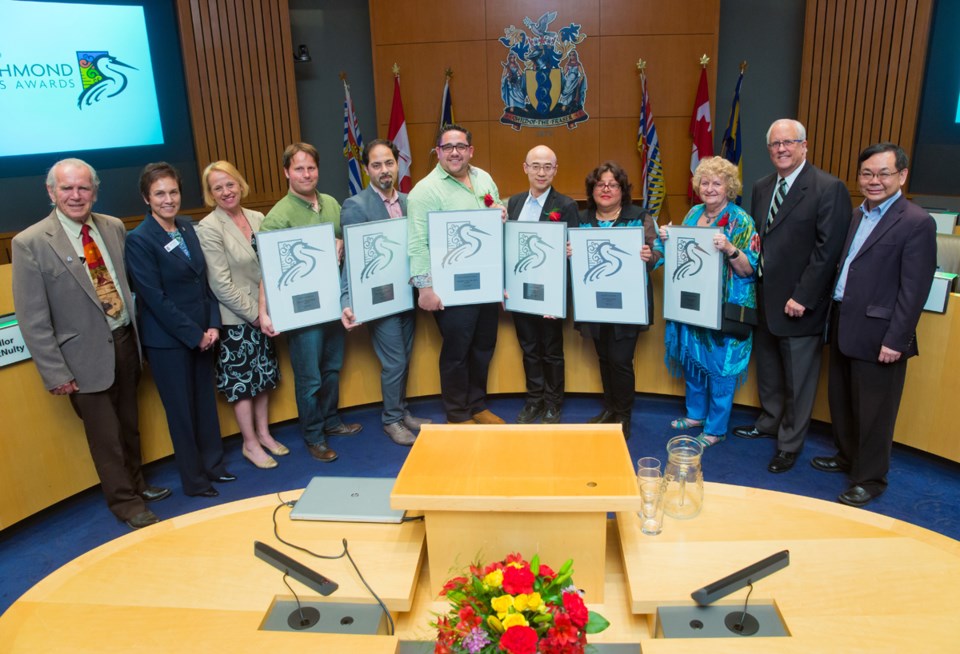Artists are the earthworms of society. They crawl through the garbage and waste, turning it into fertile soil.
At least that’s what one of the nominees told me at the reception following the Richmond Arts Awards ceremony at city hall Tuesday night. (The list of six winners was in Wednesday’s paper and is online.)
While not the most glamorous image, the notion that artists are as fundamental to human society as earthworms are to the ecosystem, is one I agree with as, I imagine, most people in that room would. This was, after all, a night to celebrate the individuals and organizations that do their part to turn cultural waste into a creatively fertile community.
The wonder of the event is discovering the many hidden gems, people toiling in their artistry, creating, or supporting others to create, some truly brilliant works of art.
But among the chatter and self-congratulations (which I fully participated in) about how Richmond is home to some true inspirations, I had a couple of concerning conversations.
The first was with one of the award winners who works tirelessly in this community, and has done so for decades, supporting visual artists. As we discussed her many projects and committees, she let it slip that she’d recently moved to the valley because she couldn’t afford Richmond housing prices.
Soon after, I spoke with an accomplished classical vocalist, who has a master’s degree in music, has toured Europe and who’s currently working on yet another degree. She, too, is looking to move, thanks to housing prices.
None of this is new. We’ve spilled plenty of ink at the News on this issue, but it still distresses me to hear the very folks we need to create an artistically rich community are being economically forced out of town.
But remember, this was a night to celebrate sideways thinking. Enter: Guest speaker Genevieve Bucher, president of Artscape, a not-for-profit, intent on creating hubs of artistic convergence, spaces that act like, as she says, “acupuncture” — a pin prick that releases a flow of energy through the whole body (or community). Among her ideas is housing for artist-led families. In a city where there is precious little subsidized housing as it is, it’s hard to imagine how we’ll support a niche market like that. But actually, this idea isn’t so far fetched — even for Richmond.
As part of the city’s arts strategy, there is an eye to helping create a neighbourhood or hub, where studios meet galleries, meet living spaces, meet commerce. This notion is already in the books.
Point being, we have the people, we have the ideas, what we need is to put our money where our mouth is and truly understand what it would mean to lose our earthworms.



